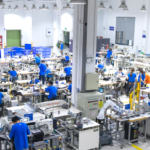Key Takeaways:
- Air filters play a pivotal role in the functioning and longevity of AC systems.
- Regular cleaning and timely replacement of filters enhance energy efficiency and indoor air quality.
- Different types of filters serve specific needs and require appropriate selection and maintenance.
The Crucial Function of Air Filters
The heart of a home’s comfort system, the air conditioner, relies immensely on an overlooked component: the air filter. A clean and functioning air filter is indispensable for the efficient operation of your AC unit. Air filters capture and hold various airborne particles that can clog the system’s inner workings, leading to decreased efficiency and increased wear on the AC unit. A commitment to regular air conditioning maintenance service, focusing on air filter care, ensures that your system remains effective and can extend its lifespan.
AC Maintenance Basics: Cleaning and Replacing Filters
Proper AC maintenance is only complete with regular attention to the air filters. Typically, air filters should be cleaned or replaced every one to three months, depending on usage and environmental factors such as pet dander and dust. Clean filters promote better airflow and prevent the AC unit from working overtime to cool your space, which can lead to wear over time. Implementation of a consistent filter maintenance schedule can result in marked improvements in system performance and energy consumption.
Impact on Energy Efficiency and Air Quality
Air filters’ role extends further into energy conservation and health. A clean air filter allows an AC system to operate at peak efficiency by providing unhindered air flow, reducing energy costs. Furthermore, air filters improve the air quality within our homes by trapping pollutants such as dust, pollen, and other allergens, which is especially beneficial for those with respiratory conditions or allergies. Upkeep of air filters is a straightforward step that bears significant outcomes for both the health of the occupants and the health of the AC system itself.
Different Types of Air Filters and Their Purposes
Air filters come in various shapes, sizes, and materials, each designed to meet different filtering needs. Fiberglass filters, often the least expensive option, are disposable and provide a basic level of protection. Pleated filters are a step up, offering greater surface area to capture more particles. High-efficiency particulate air (HEPA) filters represent the gold standard for residential air filters, capturing the highest number of airborne particles, including bacteria and viruses. Choosing a filter that fits the specific requirements of your living environment and your AC system’s capabilities is crucial.
Best Practices for Air Filter Upkeep
Effective air filter maintenance encompasses more than just regular replacement. Understanding your AC system’s specific filter requirements, including the correct size and recommended filter type, is essential. Beyond this, visual inspections of the filters can often reveal the need for a clean or replacement ahead of the usual schedule—such as during high pollen seasons or after dusty events. Staying proactive about air filter conditions protects your AC system and contributes to a cleaner, healthier indoor environment.
When to Involve Professional Maintenance Services
While many aspects of air filter maintenance can be handled independently, there are times when the expertise of a professional service is invaluable. This is particularly the case for more complex AC systems, for installations in large homes, or when the occupants have heightened sensitivity to air quality. Professional maintenance services have the expertise to recommend optimal filter types, recognize when a simple filter change won’t suffice, and perform a comprehensive AC system check to ensure that every part, from vents to coils, functions cohesively and efficiently.













